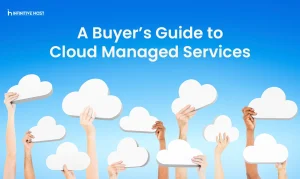Choosing a cloud service provider is a critical decision that businesses have to make, given the increasing demand for digital transformation. However, it can be overwhelming to select the right cloud service provider due to the sheer number of options available. The right cloud service provider can help you reduce costs, increase productivity, and streamline operations. Therefore, it is essential to consider some key factors when choosing a cloud service provider.
1. Type of Cloud Service Solution
The type of cloud solution that your business requires depends on your specific needs. Public clouds are ideal for businesses that require scalability and flexibility, whereas private clouds are suitable for businesses that need more control and security over their data. Hybrid clouds offer a mix of both public and private clouds, allowing businesses to take advantage of the benefits of both solutions.
2. Roadmap for Technologies and Services
A good cloud service provider should have a roadmap for their technologies and services. It is essential to choose a provider that is continuously evolving and updating its technologies and services to meet the ever-changing demands of the market. A provider that has a clear roadmap for its future technologies and services can provide businesses with the confidence that their investment in cloud technology will remain relevant.
3. Cost
The cost of cloud services is a crucial factor for most businesses. It is essential to choose a provider that offers transparent pricing models and does not charge hidden fees. Cloud providers should also be able to provide businesses with a clear understanding of how their costs will be affected by their usage.
4. Safety and Dependability
Safety and dependability are critical factors when choosing a cloud service provider. The provider should have a strong security posture that protects data from unauthorized access, breaches, and cyber threats. It is also essential to choose a provider that offers dependable service level agreements (SLAs) to ensure uptime and performance.
5. Compliance
Compliance is essential for businesses in regulated industries such as healthcare, finance, and government. It is essential to choose a cloud service provider that is compliant with the regulations that apply to your business. The provider should also be able to provide evidence of their compliance and offer support for audits.
Related:- 5 Cloud Computing Tips for Businesses
6. Services and Features
The services and features offered by a cloud service provider can make a significant difference in the value that they offer to businesses. It is essential to choose a provider that offers a comprehensive suite of services and features that align with your business needs. Providers should also be able to offer customization options to meet specific requirements.
7. Operations Compatibility
Cloud solutions should be compatible with your business operations to ensure smooth integration and collaboration. The provider should offer seamless integration with your existing systems and applications, allowing for easy access and management of data.
8. Infrastructure
The infrastructure used by a cloud service provider plays a crucial role in the performance and reliability of their services. It is essential to choose a provider that has a robust and scalable infrastructure that can handle the demands of your business. Providers should also offer redundancy and backup solutions to ensure continuity of services.
9. Contracts, Ads, and SLAs
Contracts, ads, and SLAs are essential documents that businesses should review carefully before choosing a cloud service provider. Providers should offer clear and concise contracts that outline the terms and conditions of their services. SLAs should also be clear and provide businesses with a clear understanding of the provider’s uptime and performance guarantees.
10. Support for Vendor Lock-in, Migration, and Exit Strategy
Vendor lock-in is a significant concern for businesses that invest in cloud technology. It is essential to choose a provider that offers support for vendor lock-in, migration, and exit strategies. The provider should be able to help businesses migrate their data to other providers or on-premise solutions if required.
11. Data migration assistance
Moving your data to the cloud is a critical process that requires careful planning and execution. Choose a cloud service provider that offers data migration assistance and has a proven track record of successful data migrations. This will ensure that your data is moved securely and efficiently, minimizing the risk of data loss or downtime.
12. Data management
Once your data is in the cloud, it’s important to ensure that it’s managed effectively. Look for a cloud service provider that offers robust data management tools, such as automated backups, disaster recovery, and data encryption. These tools will help you keep your data safe and accessible, even in the event of an unexpected outage or cyberattack.
Conclusion
Choosing the right cloud service provider is a critical decision that can impact your business for years to come. By following these 12 tips, you can ensure that you select a cloud service provider that meets your needs, provides excellent support, and offers scalable and cost-effective solutions. Remember to evaluate each provider carefully, taking into account their track record, security measures, and data management tools. With the right cloud service provider on your side, you can focus on growing your business and delivering value to your customers.
Choose Infinitive Host cloud hosting plans that offer top notch cloud hosting features with affordable prices. All the plans are designed to meet customized needs of customers and offers features like: 24*7 round-the-clock server support and 99.99% network uptime guarantee.







